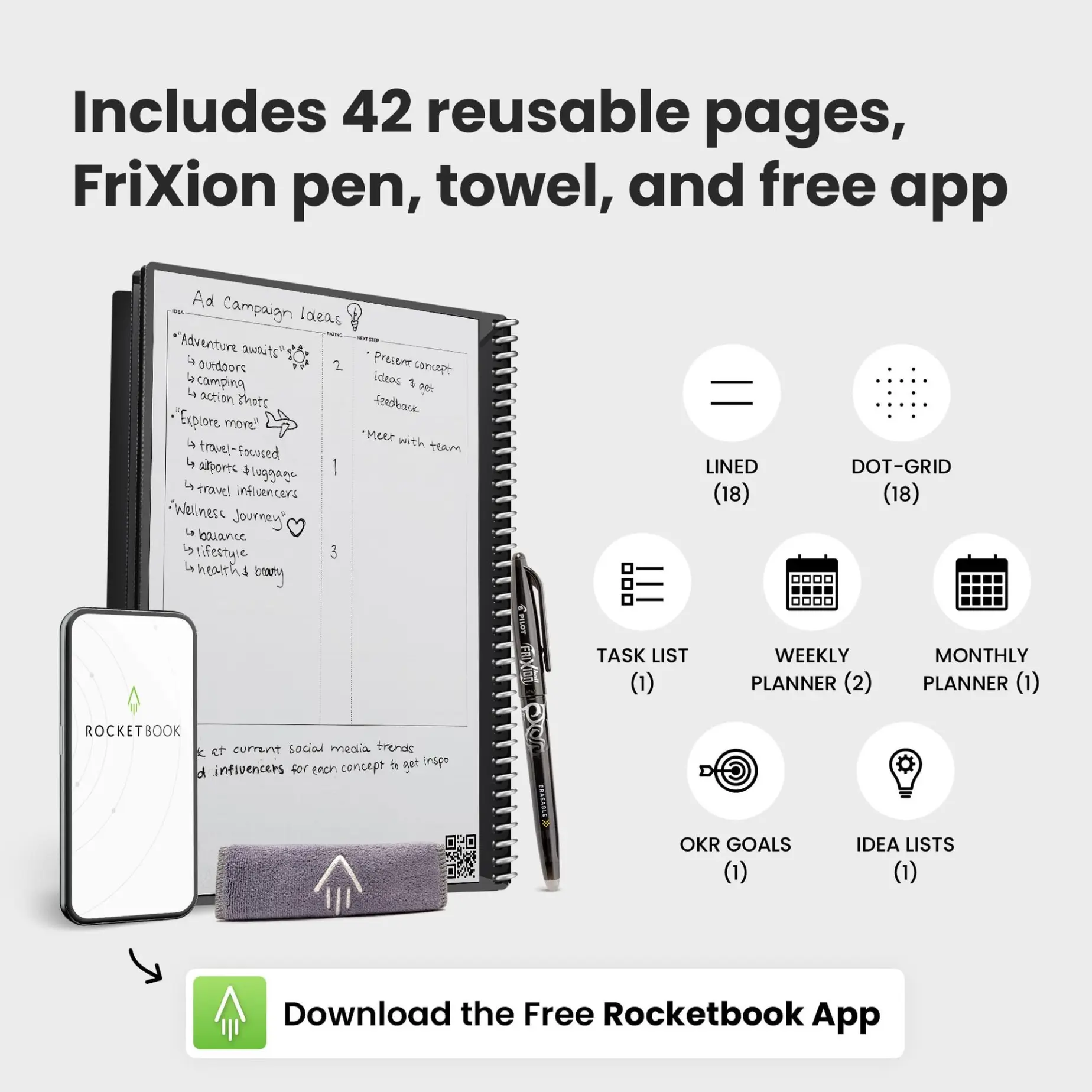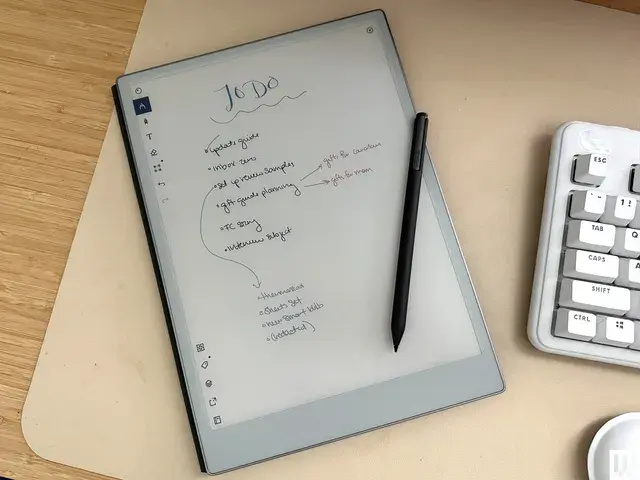1. Introduction
In an era where digital meets analogue, the humble notebook is getting a high-tech makeover. If you’re someone like me (with a content writing, education & teaching background) who still loves to scribble ideas, a smart notebook could be the perfect bridge between handwritten creativity and cloud-based productivity. Today, we review the concept of the smart notebook, what it offers, and whether it’s worth adding to your tech stack.
2. What is a Smart Notebook?
Put simply: a smart notebook is a device (or hybrid gadget) that allows you to write by hand but then digitises your notes — often via a companion app, cloud backup, and sometimes conversion to editable text. Think of it as the analogue-feel pen & paper experience, with the digital storage, search-ability and sharing features you get in the modern workspace.
They appeal especially to professionals and students who want to capture ideas quickly, then access them anywhere.
3. Key Features & What to Look For
Here are the typical features you’ll find — and what you should check before buying:
Writing surface & stylus: Most include a specialised pen and pad or notebook that recognises strokes. Quality matters for “real pen” feel.
Digitisation & cloud sync: Your notes get digitised (via Bluetooth or embedded sensors) and usually synced to an app or cloud.
Text conversion / searchability: Some convert handwriting to typed text, making your notes searchable.
Offline & battery life: Since this bridges analogue + digital, battery life matters.
App quality & organisation: The companion app experience — tags, folders, export formats (PDF, DOCX) — impacts usability.
Design & build: As a gadget-lover you’ll care about how the notebook feels, how the stylus writes, how portable it is.
Pricing vs paper alternative: A standard paper notebook is cheap — so the added value must justify the cost.

4. Why It’s Gaining Traction (Why You Should Care)
Here’s why smart notebooks are more than just novelty:
Hybrid lifestyle fit: Many professionals teach, meet, brainstorm offline then need rapid digital capture. A smart notebook fits that workflow.
Eco-friendly appeal: Fewer paper notebooks? Maybe. Even if not zero, the digital archiving matters for long-term retrieval.
Search & organisation advantage: Handwritten notes are powerful — but if they sit in a drawer, they’re lost. Smart notebooks help you find ideas later.
Enhanced collaboration: Share notes instantly with teammates, convert to digital form, integrate with productivity tools.
Focus & creativity combo: Some users argue writing by hand enhances retention/idea generation; smart notebooks preserve that while enabling digital benefits.

5. The Downsides (Yes, There Are Some)
To keep it balanced — these are the limitations you should know:
Cost vs paper: A decent smart notebook will cost significantly more than a cheap paper notebook.
Learning curve & app dependency: You must install and interact with the companion app; sometimes the digital conversion isn’t perfect.
Pen-and-paper feel varies: If the writing surface or stylus isn’t great you may lose the tactile joy.
Battery or connectivity issues: Because tech is involved, battery failure or syncing problems can hamper experience.
Over-hyped features: Some promise perfect handwriting recognition — but in reality you may face errors or delays.
6. Who Should Buy & Who Should Wait
Buy if you are:
A content creator/teacher (like you) who still scribbles ideas or sketches and wants them digitised.
Someone juggling paper notebooks + digital files and wants one unified workflow.
A productivity enthusiast who loves gadgets and is willing to invest for convenience and style.
Wait or skip if you are:
Happy using basic paper notebooks and don’t need digital syncing.
On a tight budget and can’t justify the premium cost just for “nice-to-have”.
Someone who dislikes using apps or wants 100 % traditional feel (no tech interruptions).
7. Future Outlook & Final Verdict
The smart notebook segment is still evolving. We can expect improvements in handwriting conversion, better stylus-to-screen feel, stronger battery life, broader ecosystem integration (with apps like Notion, Evernote, etc). As someone who emphasises no-mistakes in info-sharing (you asked!), I’d summarise:
Final verdict: If you’re serious about capturing handwritten ideas but also want quick digital access, a smart notebook is worth exploring. It’s not for everyone, though — traditional paper still serves fine for many. Choose based on how much value you place on the digital convenience.